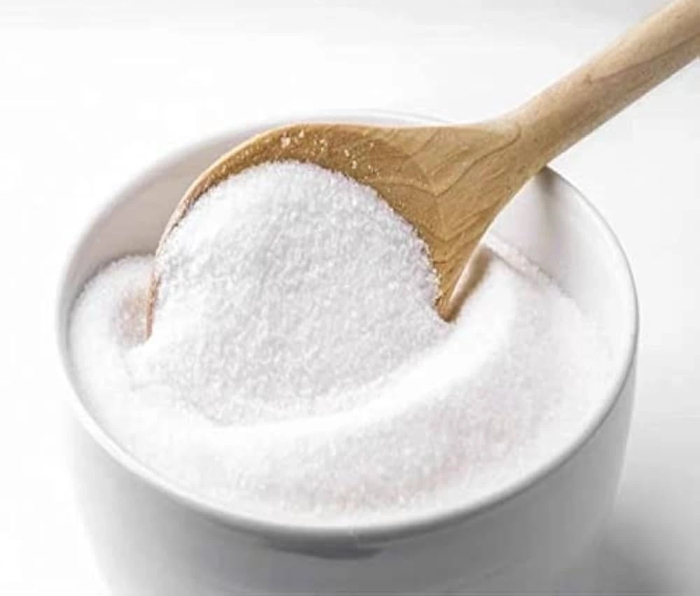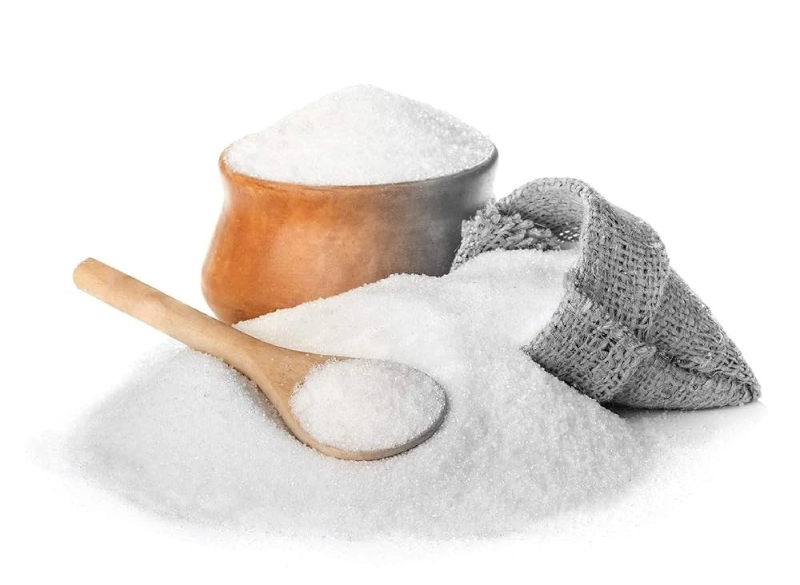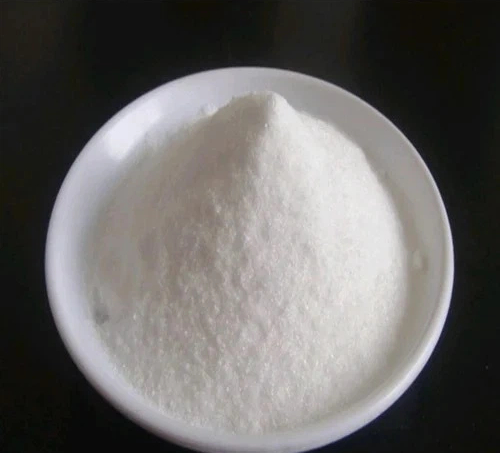







Content Menu
● Sensory and Functional Properties
● Health and Nutrition Considerations
● Regulatory and Global Market Perspectives
● Applications for Food and Healthcare Industries
● Formulation and Process Considerations
● Sustainability and Supply Chain
● Practical Tips for Manufacturers
● Frequently Asked Questions (FAQ)
>> 1. What is erythritol and how does it compare to sugar?
>> 2. Is erythritol safe for diabetic individuals?
>> 3. Do erythritol supplements affect dental health?
>> 4. Can erythritol cause digestive issues?
>> 5. In which product categories is erythritol most commonly used?
Erythritol is a widely used low-calorie sweetener in foods, beverages, and healthcare products. Its sweetness is similar to sugar but with negligible calories and a minimal impact on blood sugar and insulin. This makes erythritol a preferred choice for calorie-conscious consumers, people managing diabetes, and brands seeking tooth-friendly, clean-label solutions. This article provides an in-depth view of erythritol's role in modern formulation, production pathways, sensory properties, health considerations, regulatory landscapes, and practical applications for manufacturers and overseas partners. Throughout, the keyword Erythritol is emphasized to support SEO and industry relevance.

Erythritol is a four-carbon sugar alcohol naturally present in small amounts in some fruits and fermented foods, but commercially produced via microbial fermentation of glucose derived from carbohydrate substrates such as corn starch. It delivers a sweetness close to sucrose, typically around 60-70% of sucrose's sweetness, with virtually zero calories per gram. Its chemical structure grants high digestive tolerance and non-cariogenic properties, contributing to its appeal in dental-friendly formulations. In practice, erythritol is often used as the primary sweetener or blended with other polyols and natural sweeteners to tailor mouthfeel, sweetness onset, and aftertaste in diverse products.
Commercial erythritol is produced through fermentation using glucose substrates and selected microorganisms, followed by downstream purification to yield a crystalline powder with clean, cool sweetness. Advances in fermentation technology, purification, and energy-efficient processes have improved yields, enabling scalable adoption in global food, beverage, and healthcare markets. The "natural-sounding" profile aligns with consumer expectations for plant-based and fermentation-derived ingredients. For overseas manufacturers, reliable supply and traceability are essential to ensure consistent sweetness profiles across product lines.
Erythritol provides a clean sweetness with minimal aftertaste, enhancing consumer acceptance in chocolates, baked goods, beverages, confectionery, and dairy products. Its bulk and mouthfeel mimic sugar more closely than many other sugar substitutes, aiding texture and processing behavior. Digestive tolerance is high relative to other sugar alcohols, though large doses may cause mild gastrointestinal effects in sensitive individuals. Erythritol's near-zero caloric value and negligible glycemic impact support claims around weight management and blood sugar control. At higher concentrations, a mild cooling sensation can emerge, which can be leveraged creatively in certain confectionery and oral-care applications.
Erythritol generally has minimal impact on blood glucose and insulin levels, making it suitable for people with diabetes as part of a balanced diet. Its nearly zero calories per gram supports energy-restricted formulations. Dental health benefits stem from its non-cariogenic nature, as oral bacteria do not metabolize erythritol as readily as sucrose. Some studies explore potential antioxidant effects and other health aspects, but results vary and robust human data are still developing. As with any sweetener, individual tolerance varies; consumer guidance should reflect typical serving sizes and medical advice where appropriate.
Erythritol is widely accepted in many markets with regulatory statuses such as GRAS or permitted use in foods and beverages, subject to regional labeling and usage level regulations. For overseas manufacturers, alignment with target-market rules—label declarations, allowed daily intake ranges, allergen disclosures, and claims substantiation—is essential. The growing demand for low-sugar and sugar-reduced products positions erythritol as a core ingredient in global portfolios, particularly for brands exporting to health-conscious segments. Clear consumer education on portion sizes and potential digestive responses helps maintain product safety and satisfaction.

Food and beverage applications: Erythritol is used in bakery, confectionery, chocolate, dairy desserts, beverages, sauces, and ready-to-eat meals. It can be the primary sweetener or part of a blended sweetener system to achieve desired sweetness curves, mouthfeel, browning behavior, and texture stability. Healthcare products: Erythritol appears in dietary supplements, chewable tablets, effervescent formats, and oral-care products where low sugar content and taste quality are critical. For OEM/ODM projects and blended-sweetener development, erythritol serves as a versatile backbone to support custom formulations tailored to overseas client specifications.
When integrating erythritol into formulations, factors such as solubility, crystallization behavior, and processing temperatures must be managed to ensure consistent mouthfeel and sweetness. In tablet production, erythritol contributes to compressibility and can be paired with binders and lubricants to achieve desired hardness and disintegration profiles. For blends, strategic combinations with other polyols or natural sweeteners help modulate sweetness onset, aftertaste, and hygroscopicity. Robust supply chain management and quality control are key to delivering consistent erythritol-containing products to overseas partners.
Fermentation-based erythritol production can align with sustainability goals when using renewable feedstocks and energy-efficient processes. Transparency in sourcing, third-party certifications, and environmental stewardship should be highlighted in supplier communications. For manufacturers serving overseas clients, clear documentation on sourcing, quality assurance, and product specifications supports regulatory compliance and brand trust.
Quality control for erythritol involves rigorous specification testing for purity, moisture, particle size, and absence of contaminants. Accurate labeling, including ingredient identity and regulatory status, helps manage consumer expectations and safety considerations. Regulatory and peer-reviewed evidence supports erythritol's safety for the general population, while individuals with specific tolerances should monitor their responses and follow healthcare guidance.
Use erythritol to reduce calories and sugar content without compromising taste. A practical approach is to position erythritol as the primary sweetener in a blended system, then layer additional polyols or natural sweeteners to fine-tune sweetness intensity, mouthfeel, and aftertaste. Provide clear serving-size guidance for consumers and educate about potential digestive responses at high intake levels. Collaborate with formulation experts to optimize stability, flavor release, and texture, especially for product lines destined for overseas markets with diverse regulatory and consumer expectations.
Erythritol emerges as a versatile, low-calorie sweetener with a sugar-like sensory profile and minimal metabolic impact, making it especially suitable for overseas manufacturing collaborations in the food, beverage, and healthcare sectors. Its compatibility with blended sweetener systems, tablet formulations, and OEM/ODM projects enables brands to deliver appealing, sugar-reduced solutions that align with global health trends and regulatory expectations. For companies seeking to optimize taste, texture, and caloric balance, erythritol remains a dependable cornerstone ingredient underpinned by extensive research, regulatory acceptance, and practical manufacturing expertise.

Erythritol is a natural sugar alcohol with nearly zero calories that provides about 70% of sugar's sweetness but without the glycemic impact or dental caries risk.
Yes, erythritol is generally considered safe for diabetics as it has no glycemic impact and does not raise blood sugar or insulin levels.
No, erythritol does not promote dental caries and is actually considered tooth-friendly, as oral bacteria cannot metabolize it to produce acid that causes cavities.
Yes, excessive erythritol consumption can cause digestive discomfort like bloating or diarrhea, though it's generally better tolerated than other sugar alcohols.
Erythritol is most commonly used in sugar-free beverages, low-calorie sweets, and diabetic-friendly foods.
[1](https://www.whatsugar.com/erythritol)
[2](https://www.healthline.com/nutrition/erythritol)
[3](https://www.webmd.com/diet/what-is-erythritol)
[4](https://pmc.ncbi.nlm.nih.gov/articles/PMC9824470/)
[5](https://newsnetwork.mayoclinic.org/discussion/mayo-clinic-q-and-a-is-erythritol-a-safe-and-healthy-sugar-substitute/)
[6](https://abelyfashion.livepositively.com/erythritol-the-comprehensive-guide-to-a-natural-zero-calorie-sweetener/)
[7](https://pyureorganic.com/blogs/news/differences-between-allulose-vs-erythritol)
[8](https://pmc.ncbi.nlm.nih.gov/articles/PMC5756564/)
[9](https://www.cargill.com/doc/1432076675876/brochure-zerose-product-guide.pdf)
